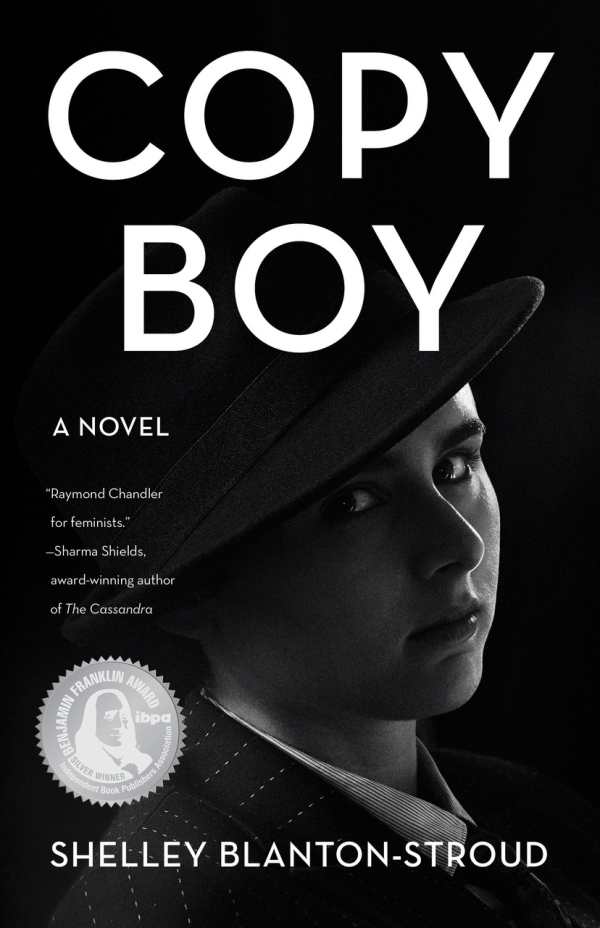Copy Boy
Copy Boy is a rewarding historical novel with a ferocious, fascinating lead.
In Shelley Blanton-Stroud’s beguiling Depression-era novel Copy Boy, a young woman searches for success.
After years of “living in a tent between the river and the tracks,” Jane’s family is in crisis. When Jane strikes her father with a crowbar to escape his violence, she flees for San Francisco, where she acts like a man to land a job at the Prospect. She’s hoping to shed her Dust Bowl origins, even if she’s just an errand boy at a newspaper who dreams of writing like Martha Gellhorn. The threat of her father’s return sends Jane into a tailspin, afraid of being exposed.
This galvanizing beginning pressurizes with the beating of a woman, Vee, who was photographed with Jane’s father. Suspense builds because Jane dreads what would happen if the photo were publicized; she is unsure of whether her father committed the assault. As Jane learns more about Vee and the photographer, Grete, whose documentary work on migrant laborers falls under suspicion, a strong confluence of events forces her old and new worlds together.
Jane’s self-preservation and journalistic instincts place her back in the hardscrabbling Okie community she left, hoping to discover what happened to Vee, who’d been planning to spill the truth about Grete. The story raises intriguing questions about perception, facts, truth, and whether it’s helpful for struggling people to tell their stories, especially if those stories involve artistic manipulation.
Jane’s ambitious choice to enter a man’s profession by imitating one is born out of poverty. She proves to be an angular thinker who is quick to dodge questions about her identity, but who still finds a home among fellow artistic and unconventional types. Her increasing receptiveness to others is a satisfying development. Internally, she expresses doubt, as well as awareness of advantages that arise when she evades scrutiny, but it’s seldom in question that Jane will come clean about her gender.
The book’s settings, including San Francisco’s bars and neighborhoods and the Prospect office, are detailed in vigorous terms. Secondary characters—including Rivka, Jane’s Czech flatmate who gives her advice on how to grow her talent—pull Jane out of her self-preserving isolation, while an imaginative secondary story related to Jane’s twin, whose name she uses, gives the story a fated edge. Jane hears her twin in her head—either an addition of pure guilt or fabulism—and his voice emboldens her.
Copy Boy is a rewarding historical novel with a ferocious lead whose upward climb results in mental strength and the reclamation of roots.
Reviewed by
Karen Rigby
Disclosure: This article is not an endorsement, but a review. The publisher of this book provided free copies of the book and paid a small fee to have their book reviewed by a professional reviewer. Foreword Reviews and Clarion Reviews make no guarantee that the publisher will receive a positive review. Foreword Magazine, Inc. is disclosing this in accordance with the Federal Trade Commission’s 16 CFR, Part 255.

